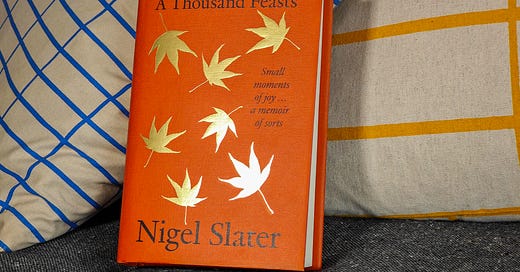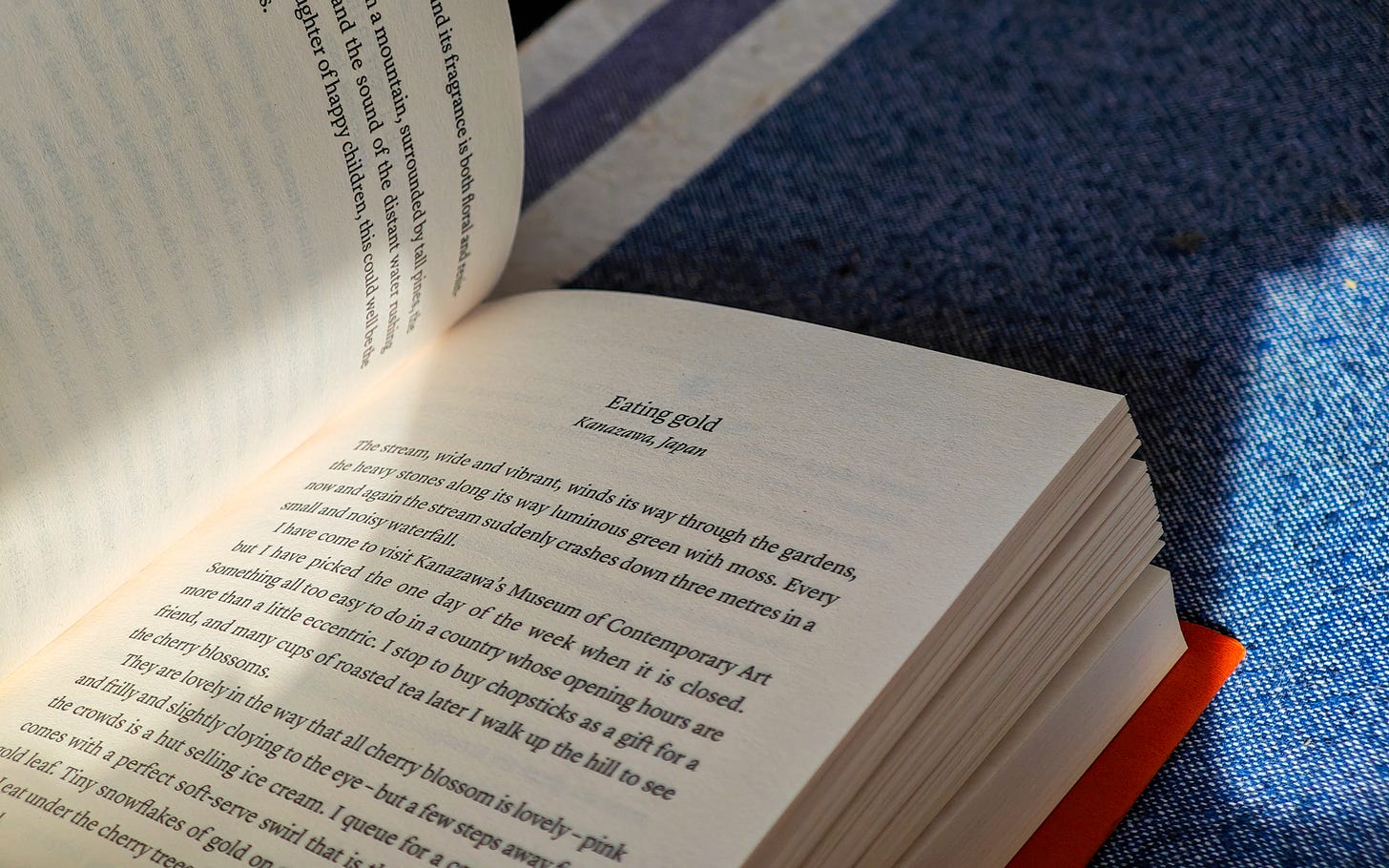A Thousand Feasts is a difficult book to describe, as Slater and his publisher seem to have discovered for themselves, billing it “a memoir of sorts” from the British cook, writer, and occasional TV presenter.
The conceit is this: Slater has collected a life’s worth of fractional diary entries, fleeting recordings of moments from the last few decades. The longest run to three pages, the shortest just three lines. Some see him muse on grand philosophical questions, in others he delves into precise details of his life and routine; at times he simply memorialises an especially exceptional bowl of soup.
This bite-sized structure is pretty central to A Thousand Feasts’ charm. It could be handily repackaged as one of those pocket-sized books of pop philosophy, a collection of aphorisms to guide you through the day. I half-wish that instead of devouring this over a fortnight I’d allowed myself to savour it, nibbling on one entry each night as a sort of literary palate cleanser, drifting off to sleep each evening with thoughts of Slater’s latest musings on the restorative properties of green tea or the correct way to eat a packed lunch on a train.
For all that it’s about food, don’t expect a cookbook. Beyond an off-hand mention of the correct procedure for making marmalade there are no recipes here. Nor is this really restaurant writing. The spots where Slater eats out, either abroad or at home, are almost never named. You won’t be able to repeat his Kyoto itinerary or take his top Tehran tips by the end, but that’s all part of the charm of this utterly different sort of memoir.
It shouldn’t be a surprise that food - both the cooking and the eating - are central themes, but A Thousand Feasts has a wider scope than the culinary. Organised into thematic sections, it starts with eating but moves onto travel, home decor, and a lengthy section devoted to Slater’s expansive garden - though a quick mention of a feast of fresh fruit is never too far away. Entries are neither arranged nor categorised chronologically, leaving the reader to draw out the order of events, which occasionally building erratically to the smallest of plot twists: in my favourite, countless entries about the virtues of tea come before the mid-life revelation when he first discovers an appreciation for the stuff after a lifetime spent as the one Brit who wouldn’t drink the stuff. At once everything before must be re-evaluated, expectations altered, the timeline of his recorded life shuffled and re-arranged.
Keep reading with a 7-day free trial
Subscribe to Braise to keep reading this post and get 7 days of free access to the full post archives.






